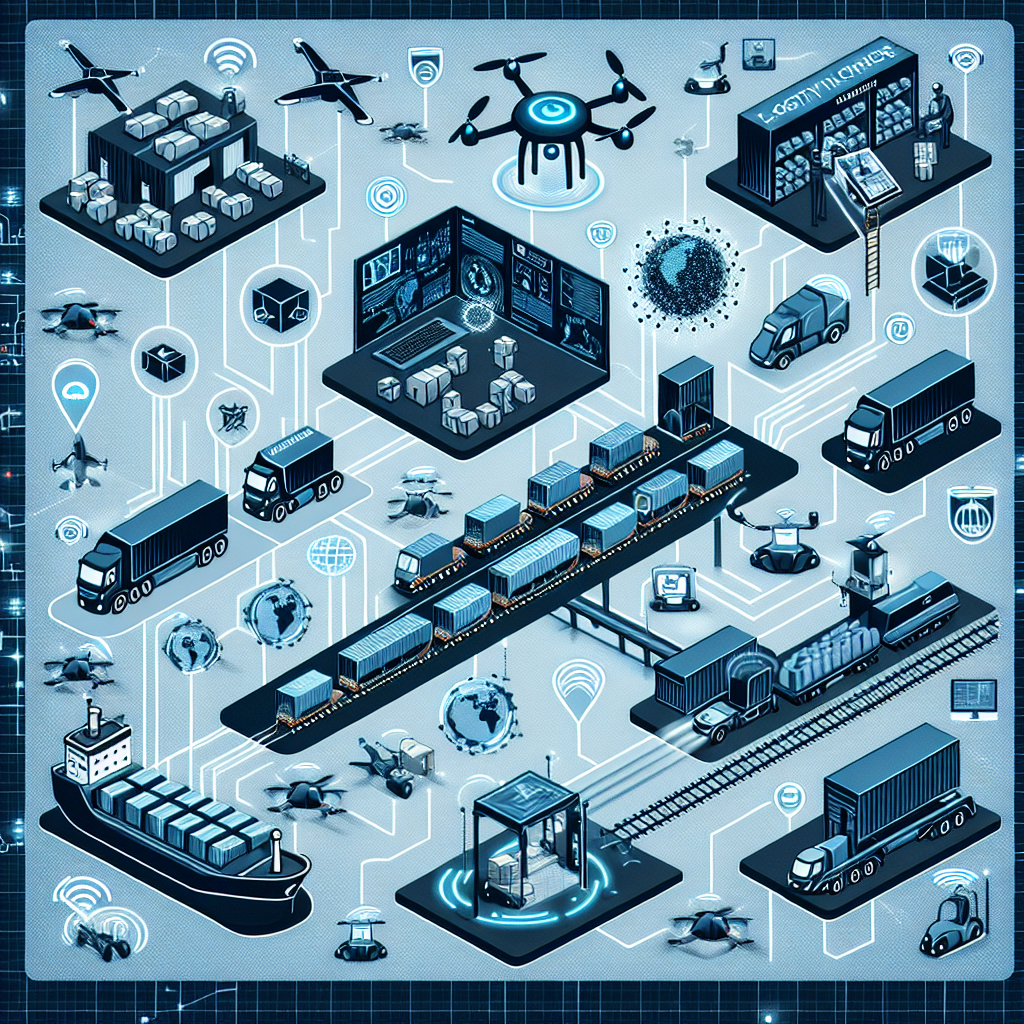The logistics and supply chain industry has always been the backbone of global trade. Over the past few decades, technological advancements have progressively optimized this sector. However, the most transformative technology by far is Artificial Intelligence (AI). AI is redefining logistics by enhancing efficiency, providing predictive analytics, and reducing operational costs. This article delves into how AI is revolutionizing the logistics and supply chain industry.
The Role of AI in Logistics and Supply Chain
The integration of AI into logistics and supply chain operations is not merely a trend but a necessity. With growing global trade and consumer demand for faster deliveries, AI becomes a critical tool for businesses. Here are some pivotal roles AI plays in this industry:
1. Predictive Analytics
One of the most significant benefits of AI in logistics is predictive analytics. AI algorithms analyze vast amounts of data to foresee future trends. By predicting demand and supply fluctuations, companies can manage inventory more effectively and minimize wastage.
Camelot Market Research conducted a study showing that companies using AI for demand forecasting have observed a 10-20% reduction in lost sales opportunities. That's a substantial gain for any enterprise!
2. Automated Warehousing
Warehousing is a critical component of the supply chain. The traditional method often involves human labor, which can be inefficient and error-prone. AI changes the game by introducing automation:
- Automated Storage and Retrieval Systems (AS/RS): These systems manage the storing and retrieving of products with minimal human intervention. Robots can work 24/7 without fatigue, significantly speeding up operations.
- Smart Inventory Management: AI can track inventory levels in real-time, predict low-stock situations, and even place orders automatically. This not only increases efficiency but also reduces the risk of overstocking and stockouts.
3. Route Optimization
Effective transportation is crucial for timely deliveries. AI-powered route optimization can calculate the most efficient routes based on various parameters such as traffic conditions, weather, and vehicle performance. This can lead to:
- Reduced Fuel Costs: By avoiding congested routes and optimizing paths, companies can save significantly on fuel costs.
- On-Time Deliveries: More accurate ETA predictions result in better customer satisfaction.
4. Enhanced Customer Service
Customer service is a vital aspect of logistics and supply chains. AI enhances customer service in multiple ways:
- Chatbots and Virtual Assistants: These AI tools can handle customer queries 24/7, providing quick and accurate responses.
- Real-Time Tracking: Customers can track their shipments in real-time, leading to increased transparency and trust.
Case Studies
DHL’s Use of AI
DHL, a global leader in logistics, has extensively adopted AI. The company utilizes AI for:
- Shipment and Tracking: Predictive analytics to offer more accurate delivery times.
- Supply Chain Management: AI algorithms for inventory management and demand forecasting.
DHL reports a 15% increase in operational efficiency thanks to AI.
Amazon’s Automated Warehouses
Amazon has leveraged AI for its warehousing solutions. The use of AI-driven robots to pick and pack items has:
- Reduced human labor costs.
- Minimized errors and returns.
- Significantly sped up the entire fulfillment process.
Amazon’s efficiency in warehousing serves as a benchmark for the industry.
Future Trends
The impact of AI on logistics and the supply chain is just beginning. Future trends include:
1. Autonomous Vehicles
Self-driving trucks and drones for deliveries could revolutionize last-mile logistics. AI-driven autonomous vehicles promise faster and more reliable deliveries.
2. Blockchain Integration
Combining AI with blockchain technology can offer unparalleled transparency and security in supply chain operations, ensuring data immutability and better tracking.
3. Enhanced Predictive Models
Future advancements in AI algorithms will make predictive models even more accurate, enhancing demand forecasting, route optimization, and inventory management.
Conclusion
AI is undeniably transforming the logistics and supply chain industry by improving efficiencies, reducing costs, and enhancing customer satisfaction. Companies that adopt AI-driven solutions will undoubtedly have a competitive edge in the fast-evolving market landscape. The integration of AI into logistics and supply chain operations is not just a future possibility but a present-day reality, paving the way for a new era in global trade and logistics.

